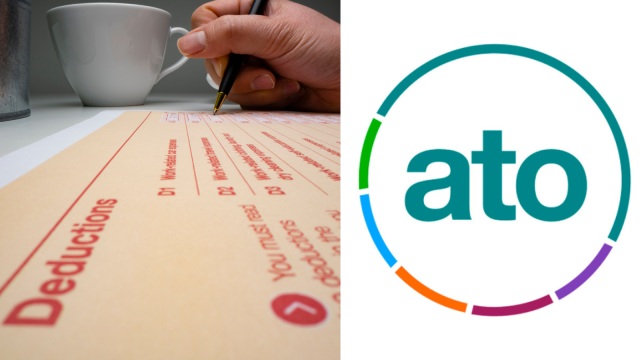As Australians settle into the new financial year, thoughts inevitably turn to tax returns and potential refunds. However, the Australian Tax Office (ATO) urges taxpayers to exercise caution before rushing to submit their 2023/24 tax returns. Taking a measured approach can avoid common pitfalls and ensure a smoother, more accurate filing process.

Why Waiting Might Be Wise: According to ATO Assistant Commissioner Rob Thomson, filing early in July increases the likelihood of overlooking critical income details. Many taxpayers forget to include essential sources of income, such as bank interest, dividends, government payments, and private health insurance details. These omissions can lead to incomplete returns and potential penalties.
Thomson advises taxpayers to wait a few weeks before submitting their returns. During this period, the ATO collects and pre-fills income statements with relevant data. This proactive measure aims to streamline the filing process and minimize errors, ultimately maximizing potential refunds for taxpayers.
How to Know When to File:
The key indicator that your tax return is ready for submission is the status of your income statement. Once marked as “tax ready” in the ATO’s Online Services, taxpayers can review pre-filled information and ensure all income sources are accounted for. This step-by-step approach reduces the likelihood of errors and ensures a more accurate tax return.
What if Mistakes Are Made?
In the event of an error after submission, taxpayers have the option to request amendments through myGov, the ATO app, or via their tax agent. This flexibility allows for corrections to be made promptly, maintaining compliance with tax regulations.
Deadline Considerations: For self-lodgers, the deadline to submit tax returns is October 31. However, using a tax agent extends this deadline significantly, offering more time for preparation and review. It’s crucial for taxpayers opting for this route to schedule appointments well before October 31, ensuring ample time for consultation and submission.
Penalties for Late Filing: Failure to meet the October 31 deadline results in penalties, starting at $330, with additional charges accruing every 28 days thereafter. While these penalties are capped, the cumulative cost of delayed filing can be substantial, reaching up to $1,650 in total.
Understanding Your Tax Refund:
For many taxpayers, the anticipated tax refund may appear smaller than expected this year. Several factors contribute to this, including changes in income, deductions, and the expiration of the low- and middle-income tax offset (LMITO). Previously, LMITO provided tax relief for individuals earning between $37,000 and $126,000, with significant benefits up to $1,080 or $1,500 in recent years. Its discontinuation as of June 30, 2022, has impacted over 10 million taxpayers, potentially reducing refunds for the current financial year.
Why You Might Owe Money:
Conversely, some taxpayers may find themselves owing money to the ATO instead of receiving a refund. Factors contributing to owing taxes include increased income pushing individuals into higher tax brackets and mandatory Medicare levy payments.
In conclusion, while the temptation to lodge tax returns early is strong, waiting a few weeks can prove beneficial. By allowing the ATO to collect and pre-fill income details, taxpayers can enhance the accuracy of their returns, reduce the risk of errors, and maximize potential refunds. As the filing deadline approaches, careful consideration of income sources, deductions, and regulatory changes ensures compliance and financial clarity for all taxpayers.